#attachment
Explore tagged Tumblr posts
Note
What was Jedi's look on relationships (new to Star Wars sorry) How come marriage was forbidden?
Ok, I don’t usually do these kind of posts, but I’ll try. Look to blogs like @/david-talks-sw (generally does more on Lucas’s intentions for the Jedi) and @/gffa (generally does more on what is shown in canon, has a long-running project nailing down every bit of Jedi Order stuff here) for more in-depth stuff, this’ll be pretty quick
From what I understand, Lucas built a lot of the Jedi order from his own views on religion. He identified as a Methodist (his Christian denomination) and as a Buddhist (convert), so both heavily inspired the Prequels.
To my quite limited knowledge of both faiths, the Christianity is more apparent in Anakin’s story and the Buddhism is more apparent in the Jedi’s worldbuilding. Buddhist monks are known for living in temples, practicing non-attachment, and not getting married. Some of them are warriors, they wear robes, they meditate, etc., it’s pretty well-established that they’re the primary inspiration for the Jedi.
So that’s probably why Lucas initially decided that Jedi couldn’t get married.
For the in-universe reason, I’ve got this older post, but it basically boils down to: the Prequels/High Republic/whatever Jedi Order went all around the Republic, risking their lives and being out in the field for months to years, which requires incredible commitment.
Serious romantic relationships like marriage also require full-time, absolute commitment, so you can’t do one without half-assing the other. Considering the life-threatening nature of Jedi missions, if you’re half-assing that, you’ll die, and if you’re half-assing your marriage it’s unfair to your partner and going to fall apart. So they don’t do it.
There you go! This is the pretty standard explanation on the pro-Jedi side of the fandom, I’m not a trailblazer or anything.
#yeah this took a while for very little#tis the nature of my askbox#star wars#is this the original post tag#jedi order positive#pro jedi#pro jedi order#jedi order#Jedi meta#meta#is this the ask tag#is this the anon tag#attachment
111 notes
·
View notes
Text
See, the other thing to keep in mind is that attachment doesn't mean love at all, not in a positive way, at least.
The word attachment, as it is used in Star Wars, means a greedy, toxic obsession with something. It doesn't actually have to be a person, either, it can be a place, an object, or even just an idea. Attachment is an unwillingness to accept CHANGE. It's a desire to hold on to something exactly as it is because you believe it will make you feel good. It's also in some ways a fear of loss, as well, a fear that that loss will cause you pain and a belief that holding onto the thing as hard as you can will keep you from feeling that pain.
Letting go of attachments isn't a good thing because the Jedi happen to be psychic space wizards with abilities that have the potential to be dangerous and so they have to limit the things they do in order to avoid being dangerous as much as possible. Letting go of attachments is a good thing for LITERALLY EVERYBODY because it is, quite simply, the healthy way to have relationships with anything in your life. People leave, homes get destroyed, objects can be lost, and ideas can be changed as you grow and learn more about the world. The only guarantee that anybody has in this world is that things change, and that can be scary, for sure, but you have to be able to accept that or you'll always be miserable.
A lot of people find ways to explain away the Jedi's rules by saying "well they're Jedi, so things are just different for them" without realizing that the whole point of the Jedi is that they're intended to be examples of the best possible way to live your life, both in universe and out of it. The Jedi's entire culture is based on good mental health practices, things that they do try to help teach everyone they meet if they can, but it's also things that you as the viewer are perfectly able to learn from them, too. Anakin is a cautionary tale of someone who chooses selfish greed over selfless compassion, someone who can't let go and accept change. And so it stands to reason then that if Anakin is the cautionary tale, then the Jedi are the opposite. They are what Anakin was MEANT to be, which means you as the viewer should be able to look at them as an example of what YOU can be, too.
The rule about attachment isn't just about keeping your powers in check. The Jedi have years of specialized training to keep their powers in check. The rule about attachment is there because literally EVERYBODY should be doing this as a general rule of thumb. Anybody can cause someone harm by being too attached to something. Anakin's attachments destroy an entire galaxy in order to make a really obvious point, but there are plenty of other ways your own attachments to people, places, things, or ideas might be causing you or someone else harm.
It's not "great power comes with great responsibility," it's "being a person living in the world automatically comes with a responsibility to yourself and the people around you." If you try to look at this as just a thing the Jedi have to do because they have magical powers, then you've kind-of missed the whole message behind Anakin's fall and the Jedi's destruction. You can look at Anakin and go "Well, but that wouldn't happen to ME because I don't have magic powers" as opposed to recognizing that this can still absolutely happen to you even if the consequences are smaller and so you still need to learn the lesson that Anakin couldn't in order to live a happier, healthier life.
The attachment rule arguably has nothing to do with relationships specifically, it's just the place where Anakin tends to struggle the most (although I'd argue he also struggles with attachments to his own IDEAS of how the world works, as well, but that one's a little less obvious) and so that's what people tend to focus on.
The Jedi do also seem to have rules about their members getting married and having kids, but that's more of an issue with COMMITMENT to the work the Jedi do and not an issue of attachment, so that's a completely separate conversation.
I was listening to a star wars podcast that mentioned the no attachments rule and I was once again reminded that people have a very odd interpretation of that rule. that interpretation being that jedi condemned love as something bad that should be avoided at all costs. whereas I've always understood it as a kind of 'necessary evil' precaution.
let's look at a more mundane analogy like speed limits. I know this sounds ridiculous right off the bat but bear with me here. does driving inherently mean you have the potential to be dangerous to those around you? yes, it does. if you hit someone with a car, you're more likely to hurt or kill them. it's a privilege that should be used with caution. okay are there people out there who drive responsibly and aren't likely to hurt anyone even at high speeds? sure, tons of them. probably even the majority because they learn all these rules and pass a driving test and all that. does that mean that we should allow everyone to drive as fast as they want? no, it doesn't. because there are people that are irresponsible or don't exercise enough caution and even one of them can deal severe irreparable damage if they're allowed to drive at high speeds. so can people exist normally without driving above the speed limit? sure, they can still get to their destination just fine.
are we sensing the pattern here? high speed driving itself isn't the villain, it's not inherently bad. but knowing there are people out there who might do it irresponsibly and will deal real bad damage when they do and the fact that we can't predict who these people are and apply the rules to them selectively means that it's safer for everyone if there's one universal rule which doesn't ban driving altogether but just limits it for the sake of avoiding future accidents.
okay, now let's apply that to the Force, only we multiply everything thousandfold.
does being Force-sensitive inherently mean you have the potential to be dangerous to those around you? yes, it does. a person with a car can do a lot of damage but nowhere near what we've seen a single dark side user like Palpatine or Vader do. same thing here, being able to use the Force is a privilege that should be used with caution. are there people out there who use the Force responsibly and aren't likely to hurt anyone even when they allow themselves to have specific relationships (like spouses, children, etc.)? sure. probbaly the majority of the Jedi order because they're taught all this philosophy about how they should use their power, it's this really nice set of teachings about love, selflessness and managing your emotions.
now...
does that mean that we should allow every force user to have specific relationships? no, it doesn't. because there are people that are irresponsible or don't exercise enough caution and even one of them can deal severe irreparable damage if they're allowed to be reckless with their relationships (I didn't even need to reword this part). so can people exist normally without specific relationships? sure, they can still form deep loving connections and have their emotional needs met, in fact the jedi are explicitly shown to encourage community and cooperation, their whole social structure is very akin to one big family. masters and padawans being clear examples of the order's version of parent child relationships, your crechemates being like siblings to you, etc.
so no, the no attachments rule isn't implying that all forms of love are inherently bad or dangerous. what it is, in my mind, is just the result of a long history where the jedi realized that some behaviors can lead to disastrous consequences if left unchecked. my guess is that there must have been many jedi who fell to the dark side because of attachment i.e. obsession so the most natural thing to do if you're an institution tasked with the responsibility of teaching Force users how to use their power responsibly is to make a rule for these behaviors and I don't understand why this is so offensive to people.
it's not that different from analyzing a bunch of car accidents, identifying a pattern (high speed), deciding that you can do away with that without seriously harming anyone and establishing a rule to minimize the chance of future accidents.
and yes, these kinds of rules require some sacrifice. taking longer to get to your destination sucks but you make that sacrifice to keep the people around you safe. and of course having to be careful about your relationships and avoiding some types of relationships is a much bigger sacrifice but as we already said, so is the danger that one dark side user poses in comparison to one reckless driver.
great power comes with great responsibility and this applies to Force users to an extreme extent. yes, personal sacrifice and selflessness at that scale are extremely difficult to comprehend for most of us but so is the power that comes with being able to wield the Force. it's much easier to 'deconstruct' that idea and say it was wrong and corrupted to begin with without bothering to try and imagine what the implications of such a power are and it's sad to see that this is the route most people take when looking at the jedi.
120 notes
·
View notes
Text
Transparent LED Screen transforming windows or glass into a dynamic video screen.
7K notes
·
View notes
Text
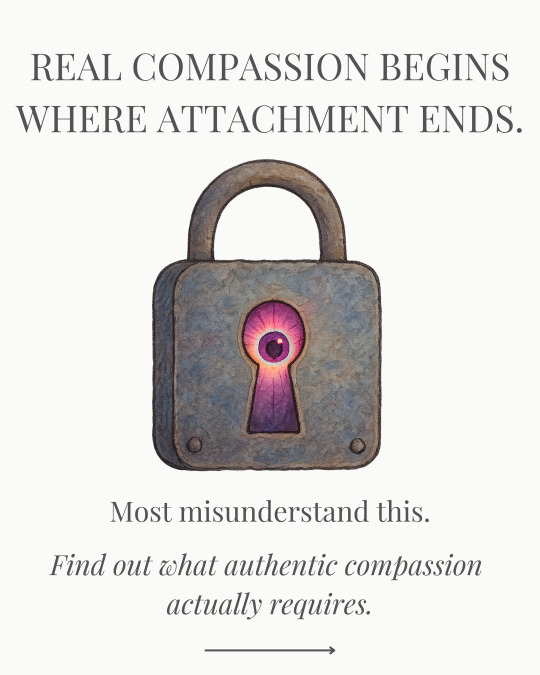
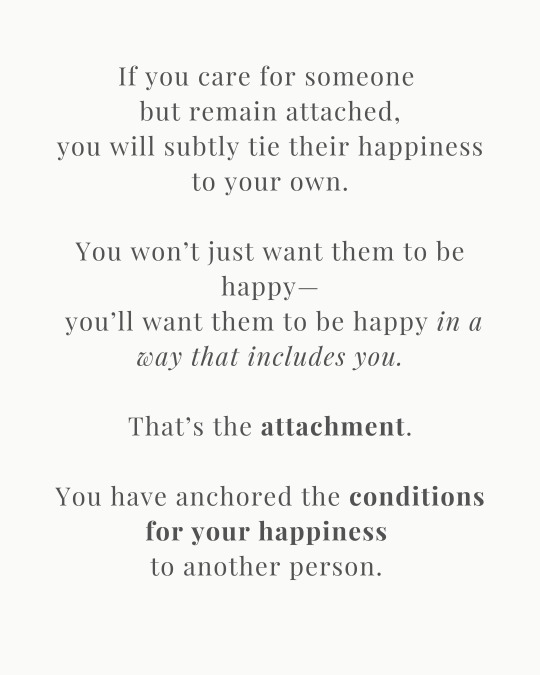
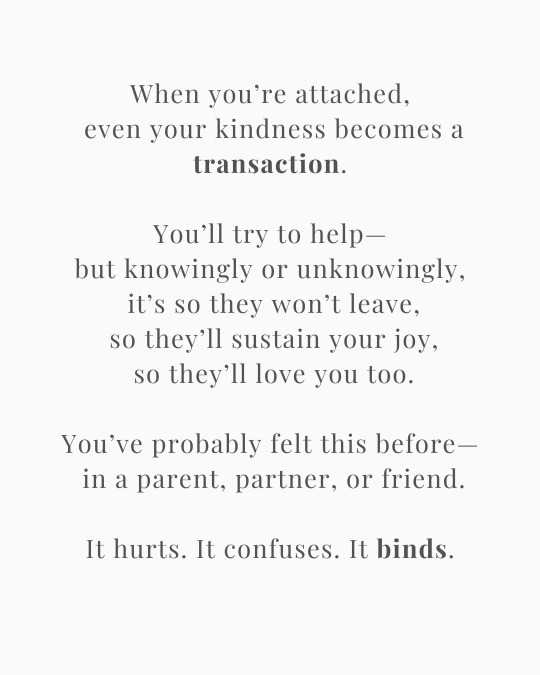
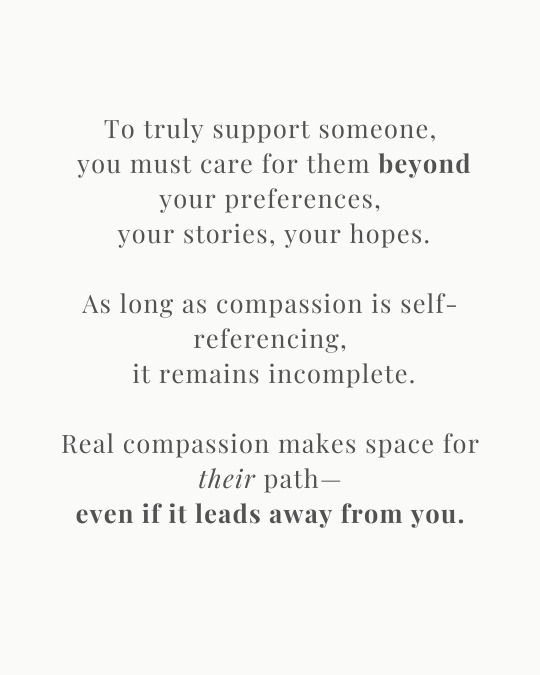
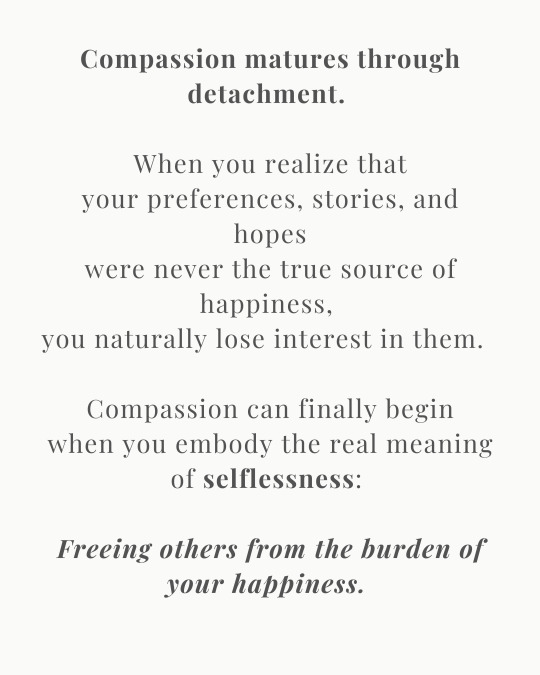
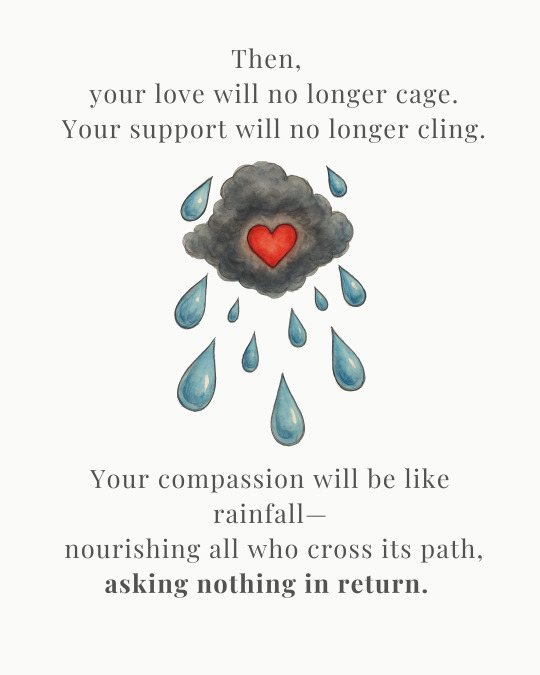
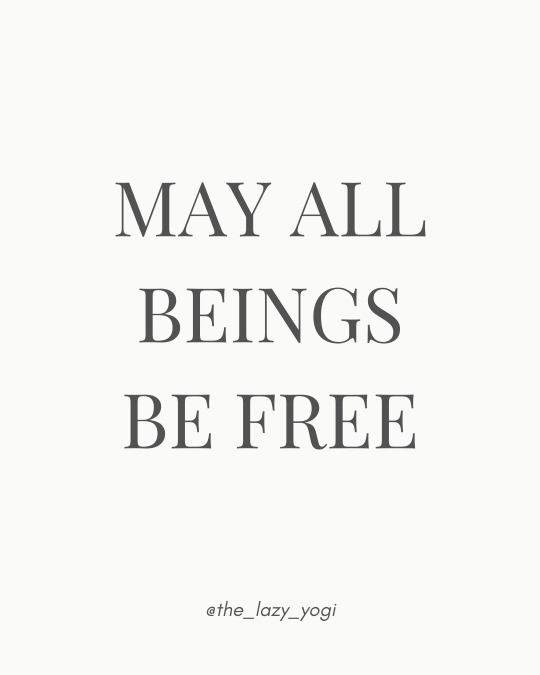
Insta: @the_lazy_yogi
#spirituality#shadow work#shadow#compassion#attachment#mindfulness#selflessness#yoga#energy#consciousness#self improvement#self work
41 notes
·
View notes
Text
“The softest things in the world overcome the hardest things in the world. From this I know that non-action (detachment) is useful.”
— Lao Tzu
66 notes
·
View notes
Text

#be here now#love#attachment#free love#aesthetic#vintage#soulmates#style#beauty#run away#eternity#forever love#best friends#gratitude
31 notes
·
View notes
Text
Writing Notes: Anxious Attachment Style
Common Anxious Thoughts, Emotions, and Reactions
THOUGHTS
Mind reading: "That’s it, I know s/he’s leaving me."
All-or-nothing thinking: "I’ve ruined everything, there’s nothing I can do to mend the situation."
"I’ll never find anyone else."
"I knew this was too good to last."
"I have to talk to or see him/her right now."
"S/he can’t treat me this way! I’ll show him/her!"
"S/he is so amazing, why would s/he want to be with me anyway?"
"I knew something would go wrong; nothing ever works out right for me."
"S/he’d better come crawling back to beg my forgiveness, otherwise s/he can forget about me forever."
"Maybe if I look drop-dead gorgeous or act seductive, things will work out."
Remembering all the good things your partner ever did and said after calming down from a fight.
Recalling only the bad things your partner has ever done when you’re fighting.
EMOTIONS
Sad ⚜ Angry ⚜ Fearful ⚜ Resentful ⚜ Frustrated
Hopeless ⚜ Despairing ⚜ Jealous ⚜ Hostile ⚜ Vengeful
Guilty ⚜ Self-loathing ⚜ Restless ⚜ Uneasy ⚜ Humiliated
Hate-filled ⚜ Uncertain ⚜ Agitated ⚜ Rejected ⚜ Depressed
Unloved ⚜ Lonely ⚜ Misunderstood ⚜ Unappreciated
ACTIONS
Act out. ⚜ Attempt to reestablish contact at any cost.
Pick a fight. ⚜ Threaten to leave.
Wait for them to make the first reconciliation move.
Act hostile—roll eyes, look disdainful.
Try to make him/her feel jealous.
Act busy or unapproachable. ⚜ Act manipulatively.
Withdraw—stop talking to their partner or turn away from him/her physically.
Attachment classifications come from watching babies’ behavior.
Below is a short description of how anxious attachment style is defined in children. Some of their responses can also be detected in adults who share the same attachment style.
This baby becomes extremely distressed when mommy leaves the room.
When her mother returns, she reacts ambivalently—she is happy to see her but angry at the same time.
She takes longer to calm down, and even when she does, it is only temporary.
A few seconds later, she’ll angrily push mommy away, wriggle down, and burst into tears again.
Where Do Attachments Styles Come From?
Initially it was assumed that adult attachment styles were primarily a product of your upbringing.
Thus, it was hypothesized that your current attachment style is determined by the way in which you were cared for as a baby:
If your parents were sensitive, available, and responsive, you should have a secure attachment style; if they were inconsistently responsive, you should develop an anxious attachment style; and if they were distant, rigid, and unresponsive, you should develop an avoidant attachment style.
Today, however, we know that attachment styles in adulthood are influenced by a variety of factors, one of which is the way our parents cared for us, but other factors also come into play, including our genes and life experiences.
Source ⚜ More: On Attachment ⚜ Writing Notes & References Writing Resources PDFs ⚜ Avoidant ⚜ Secure ⚜ Disorganized
#requested#writing reference#attachment#psychology#writeblr#writing notes#studyblr#literature#writers on tumblr#dark academia#spilled ink#writing prompt#light academia#fiction#anxious attachment#writing resources
2K notes
·
View notes
Text
Disney, hire me as your Attachment Advisor, I will shove so many George Lucas quotes at your producers and writers, I will shove so many context-laden clips from the movies and TCW at your creatives, I will make powerpoint essays about how it's more Buddhist-aligned, not Attachment Theory-aligned, I will cite literally every time attachment has ever been discussed by Lucas AND in the show itself and show you that it's always aligned with fear, possessive feelings, and selfishness, I will do this work for you for free, I can even literally just point you to my Jedi Citations collection, DISNEY, HIRE ME AS YOUR ATTACHMENT ADVISOR, I CAN HELP YOU.
#lumi.txt#star wars#the acolyte#the acolyte spoilers#attachment#sw negativity#i guess? it's not that bad but you know#i make myself laugh and that's all that's important
1K notes
·
View notes
Text
Debunking myths in the GFFA: Luke Skywalker isn't the One True Jedi™ and doesn't "reject the Jedi teachings."
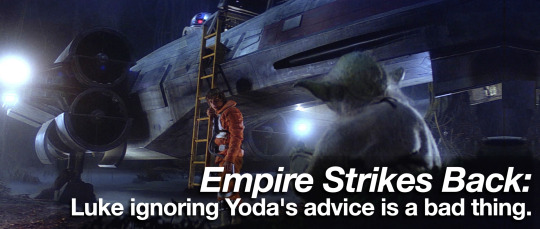
The myth:
Luke's Jedi mentors - trained to be dispassionate and mission-driven - callously tell him to let his friends die in service of a greater cause.
"In The Empire Strikes Back, Luke becomes Yoda's Padawan, and there are echoes of Anakin's training and the dilemmas he faced. Like Anakin, Luke is told he is too old to begin the training. Like Anakin, he has a vision of his loved ones suffering in captivity, and receives cold advice from Yoda, who tells him to sacrifice Han and Leia if he honors what they fight for." - Jason Fry, “Family Tradition; Rejecting the Jedi Teachings” Star Wars Insider #130, 2012

The intended narrative:
The Jedi are actually right on all points. Luke isn't ready or fully trained and he's arrogantly letting his emotions rule him and rushing into danger. By ignoring them, Luke gets himself into a spot of trouble that actually jeopardizes the lives of the very friends he tried to help, as they now need to rescue him.
“It’s pivotal that Luke doesn’t have patience. He doesn’t want to finish his training. He’s being succumbed by his emotional feelings for his friends rather than the practical feelings of “I’ve got to get this job done before I can actually save them. I can’t save them, really.” But he sort of takes the easy route, the arrogant route, the emotional but least practical route, which is to say, “I’m just going to go off and do this without thinking too much.” And the result is that he fails and doesn’t do well for Han Solo or himself.”
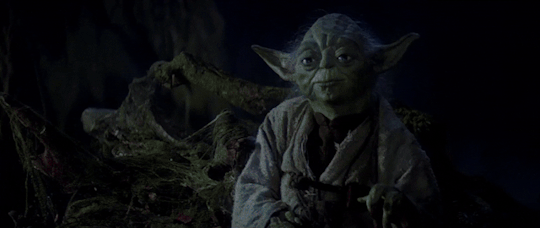
“Luke is making a critical mistake in his life of going after- to try to save his friends when he’s not ready. There’s a lot being taught here about patience and about waiting for the right moment to do whatever you’re going to do.”
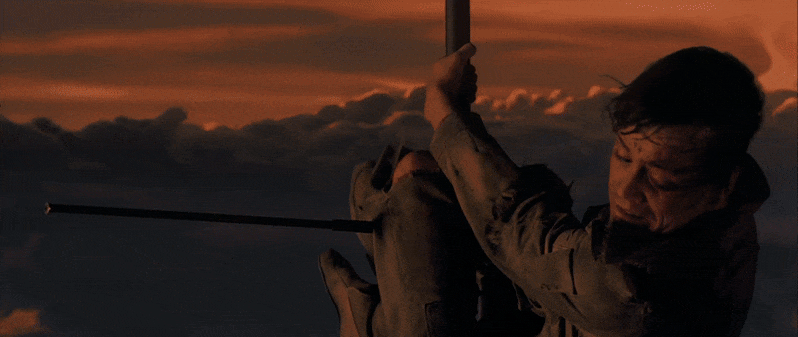
“Luke is in the process of going into an extremely dangerous situation out of his compassion— Without the proper training, without the proper thought, without the proper foresight to figure out how he’s gonna get out of it. His impulses are right, but his methodology is wrong.”
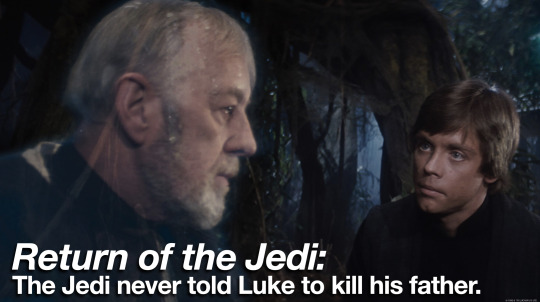
The myth:
The Jedi want Luke to repress his feelings and kill his father, to destroy the Sith, their religious enemies. As emotionally-detached Jedi, it is inconceivable that a Sith would come back from the Dark Side, and thus wrongly believe that the only solution is to kill Vader.
"It's easy to miss that Luke disagrees sharply with his Jedi teachers about what to do. Obi-Wan and Yoda have trained Luke and push him toward a second confrontation with Vader. He is, they believe, the Jedi weapon that will destroy both Vader and the Emperor. When Luke insists there is still good in Vader, Obi-Wan retorts that "he's more machine than man-twisted and evil." When Luke says he can't kill his own father, Obi-Wan despairs, "Then the Emperor has already won." But Obi-Wan could not be more wrong. It is precisely because Luke can't kill his own father that he defeats the Sith." - Jason Fry, Star Wars Insider #130, 2012

The intended narrative:
The Jedi never tell Luke to "kill" his father. That's just a fact.
They tell him to "confront" and "face" him.
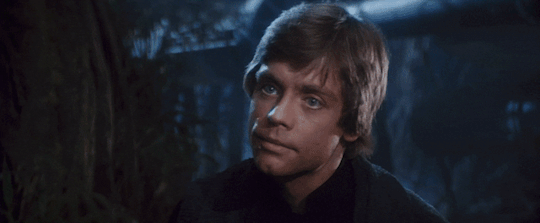
Their bottom line is that Vader and the Emperor need to be stopped.
If Luke can manage to do so without killing his father, that's great.
"In Jedi the film is really about the redemption of this fallen angel. Ben is the fitting good angel, and Vader is the bad angel who started off good. All these years Ben has been waiting for Luke to come of age so that he can become a Jedi and redeem his father. That's what Ben has been doing, but you don't know this in the first film." - Star Wars: The Annotated Screenplays, 1998
(credit to @writerbuddha for finding the above quote)
The problem is: Darth Vader has a track record of murdering loved ones who refuse to kill him. Be it his wife...
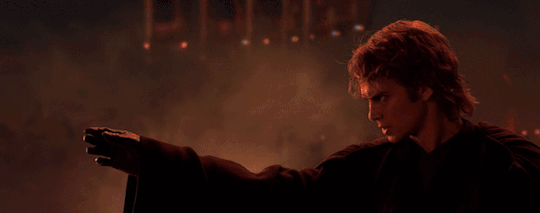
... his father/brother...
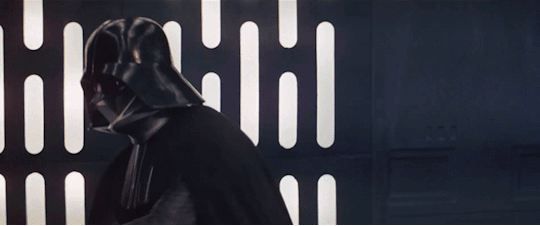
... and if you're going by Canon, his little sister.
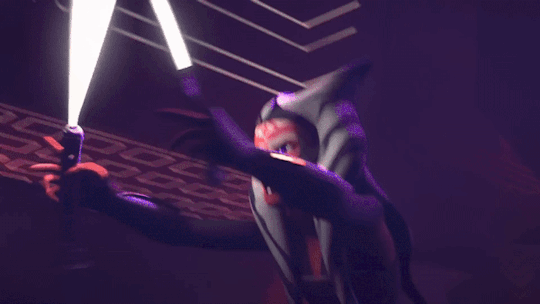
As such, there's a very strong chance that Vader might do the same to his son as well.
“A Jedi can’t kill for the sake of killing. The mission isn’t for Luke to go out and kill his father and get rid of him. The issue is, if he confronts his father again, he may, in defending himself, have to kill him, because his father will try to kill him.” - 1981 story conference, from The Making of Return of the Jedi
Now, as the last Jedi left, the fate of the galaxy rests entirely on Luke's shoulders.
If he dies, then the galaxy and its billions of inhabitants are doomed to live in a tyrannical dictatorship forever.
“He knows a confrontation is brewing between Luke and his father. Ben hopes Luke will either save his father or kill him, because whatever extra powers Luke's got in his lineage, he is the one person that can probably fight his father and win.” - The Star Wars Archives: 1977-1983, 2018
There's a time for talking things through... and a time to do your duty. Above all else, a Jedi's duty is to end conflict.
Obi-Wan was once tasked with this same duty.
And while he managed to weaken Vader considerably (thus avoiding the catastrophe of a full-powered Vader being unleashed onto the galaxy)... because of his attachment, he failed to kill Vader.
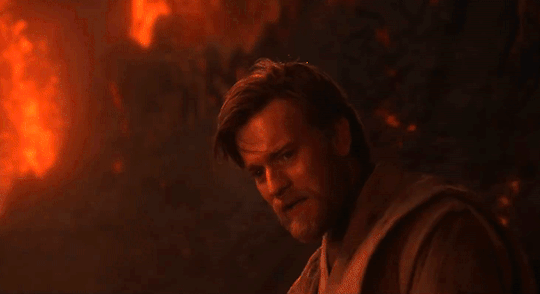
Twice, if you include the Kenobi show.
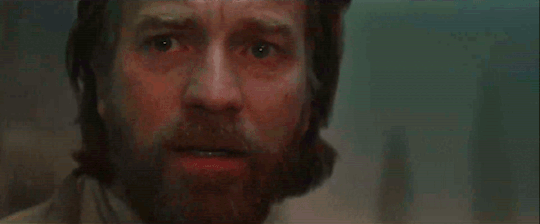
(A show which, per Pablo Hidalgo, is one of George Lucas' favorite recent Star Wars projects, a tidbit that doesn't surprise me one bit considering how much the series perfectly aligns with what Lucas said about Star Wars (see here, here and here))
Point being: because Ben failed his duty, the galaxy suffered for it.
Luke is now in danger of doing the same.
If he's unable to end the conflict in a peaceful way, then Luke needs to be ready to do so in a more permanent manner. Because while Luke has qualms about killing his father, there's a very big chance that the feeling won't be mutual.
So Luke isn't rejecting his teachers' orders to kill Vader. He's saying he's unable to confront Vader altogether, because he'll be half-assing the task. In the (very likely) worst case scenario where reasoning with Vader fails, Luke is concerned he won't be able to follow-through and do what he must.
Further, there's also a worse outcome to Luke dying: Luke joining the Dark Side and becoming yet another asset of the Emperor, more dangerous than Vader himself.
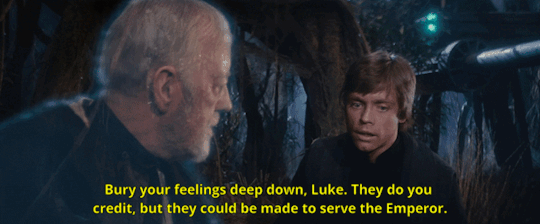
It's thus essential that Luke steel himself and mask his emotions, because the Emperor is a master manipulator who'll likely attempt to corrupt Luke via the strong emotions he has for his friends.
Obi-Wan is not telling Luke to repress his emotions. On the contrary, he acknowledges that these feelings do Luke credit. But the fact remains that when your opponent can jiu-jitsu those feelings against you and your friends, you need to keep a poker face.
And judging by how close the Sith Lords come to seducing Luke to the Dark Side...
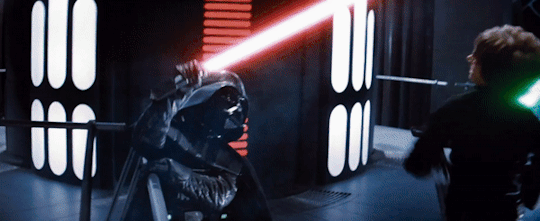
... that advice is completely on point.
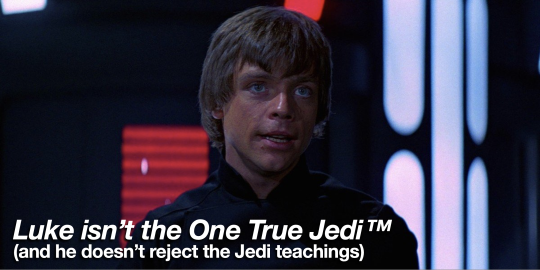
The myth:
"It isn't Jedi teachings that save the galaxy, but bonds the Jedi tried to forbid - such as the love of a father for his son, and a son for his father. Emotional attachments, in other words." - Jason Fry, Star Wars Insider #130, 2012

The intended narrative:
In Return of the Jedi, Luke isn't doing anything different than what other Jedi have done.
He does his best to avoid lethal force unless he deems that it is necessary (see his fight against Jabba's hostile forces).
He sacrifices himself for the greater good and let himself be captured, in order to allow the mission to be carried out.
He tries to reason with his enemy, hoping to avoid conflict.
He spares his enemy, showing mercy.
That's all standard Jedi stuff. We've seen other Jedi do all those things, both in the films and The Clone Wars.
If that isn't enough, just look at how Lucas describes what Jedi normally do (left), versus what Luke does in Return of the Jedi (right):
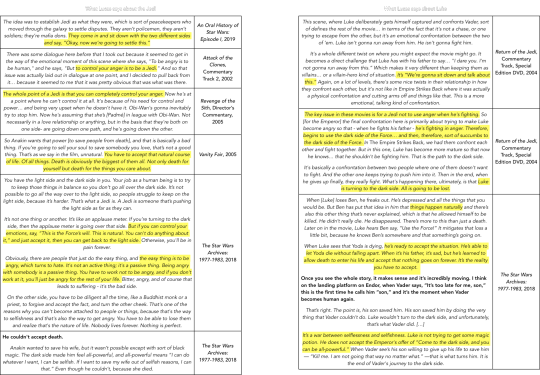
See what I mean? There’s pretty much no difference.
In Lucas' narrative, Luke isn’t “better than” or “rejecting the teachings” of the Jedi who came before him. He’s following the Jedi path. And he's really good at doing so.
Because this idea that Luke "rejects the teachings" makes no sense! They're Lucas' teachings. He agrees with the Jedi, they're the mouthpieces he uses to deliver the audience his own values.
Lucas having his main character do something he'd ideologically disagree with is something that doesn't make sense.
And part of this confusion comes from a misunderstanding of the word "attachment", in Star Wars.
It doesn't mean "emotional attachments" or "feelings" or "affection." It comes from the Buddhist principle of non-attachment.
It's not about depriving yourself of relationships or affection, it's about accepting that everything comes and goes and letting go of those very things you hold on to, when the time comes.
Lucas makes a distinction in his discourse between attachment and compassion.
"The whole idea of the movie, ultimately is that you have the Light Side and the Dark Side. The Light Side is compassion, which means you care about other people. The Dark Side is you care only about yourself. And you are obsessed with yourself. Getting your pleasure and getting all your stuff. The other one, you give it to everybody. You give goodness and health to everybody else. So the issue of love... there’s a line between loving somebody compassionately and caring about them and helping them. But the other line is not to be greedy or... once you are greedy then you get fearful. You don’t want to lose what it is you have that you are getting. So you have to learn to give up everything. And ultimately for a Jedi Knight, it’s very easy to give up." - Celebration V, Main Event, 2010
In-universe, this is something Anakin knew the theory of, but never really applied all that much.

Luke on the other hand, was able to learn the lesson and apply it.
Speaking in Lucas lingo, it's not Luke's attachment that makes him spare Vader. It's his compassion. And in turn, that compassion inspires Vader to do the same.
"It really has to do with learning. Children teach you compassion. They teach you to love unconditionally. Anakin can’t be redeemed for all the pain and suffering he’s caused. He doesn’t right the wrongs, but he stops the horror. The end of the Saga is simply Anakin saying, ‘I care about this person, regardless of what it means to me. I will throw away everything that I have, everything that I have grown to love - primarily the Emperor - and throw away my life, to save this person. And I’m doing this because he has faith in me, loves me despite all the horrible things I’ve done. I broke his mother’s heart, but he still cares about me, and I can’t let that die.’" - The Making of Revenge of The Sith; page 221
Or, to put things more simply:
Attachment (selfish love), is what makes Anakin do this:
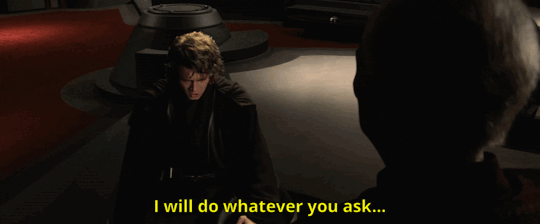

Compassion (selfless love), is what makes Luke do this:
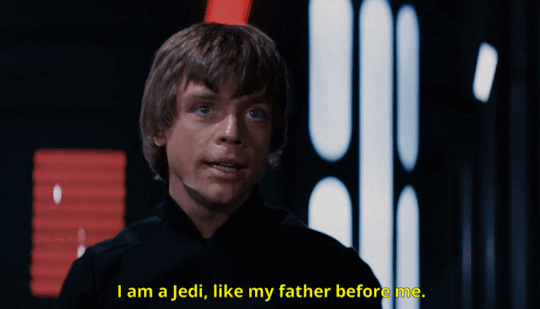
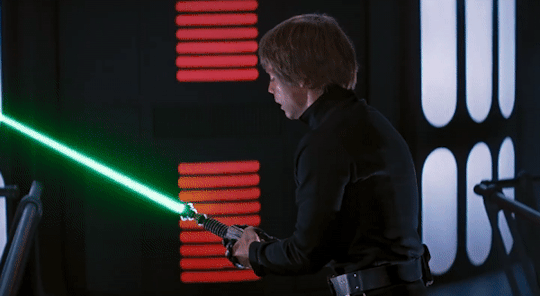
Now, could Lucas have made his narrative more explicit, to avoid confusion? Maybe.
But I think it's also fair to point the finger at the biggest cause of these muddied waters:
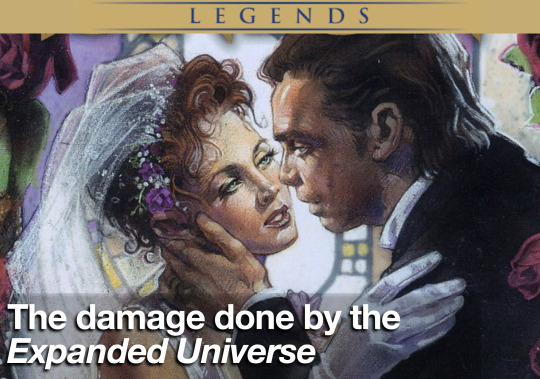
Simply put, the Expanded Universe (the Star Wars books, novels and games that spun out of the films) established new lore elements that didn't necessarily align with Lucas' vision of things. Namely:
Jedi can get married, and Luke marries Mara Jade.
Jedi can begin their training as adults, and Luke takes on many apprentices that are already adults.
When considering George's minimal involvement in the development of EU stories, it's easy to see why these plot points were allowed to come through.
But when he made the Prequels, his headcanons came to light and the above plot points needed to be retconned.

George Lucas' narrative:
"Nope. You can't be a Jedi and be married."
This isn't actually coming out of left field.
When Timothy Zahn asked for Luke and Mara to be married or engaged, back in 1993, Lucasfilm initially vetoed the idea.
And over the years, Lucas and other Lucasfilm employees have made it it clear that "Luke getting married" did not align with his vision (so much so that it's a plot point in Attack of the Clones).
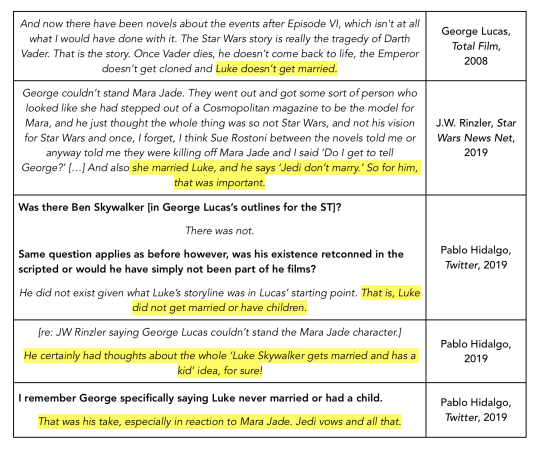
So the question becomes: why can't Jedi get married?
It's about commitment.
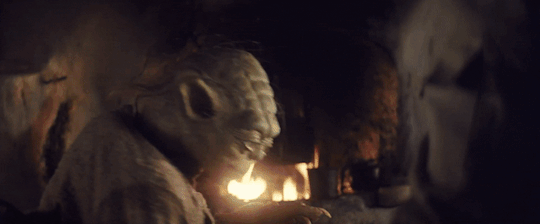
Simply put: you can't have two marriages. Eventually, your commitment to one of them will falter and you'll ruin them both. A Jedi is already married to the cause and to the Order.
If they want to get married, they have to leave the Jedi.
"One of the things [the Jedi] give up is marriage. They can still love people. But they can’t possess them. They can’t own them. They can’t demand that they do things. They have to be able to accept the fact, one, their mortality, that they are going to die. And not worry about it. That the loved ones they have, everything they love is going to die and they can’t do anything about it. I mean they can protect them as you would ordinarily protect, you know, ‘Get out of the way of that car.’ Somebody charges you with a gun, you knock the gun out, but there is an inevitability to life which is death and you have to accept that." - Celebration V, Main Event, 2010
And this is another example, really, of how Lucas' own values and past experiences shape the Jedi's teachings.
Marcia Lucas divorced George because he was constantly working on Star Wars, even when he wasn't directing it, which she said led to an emotional blockage in their marriage...
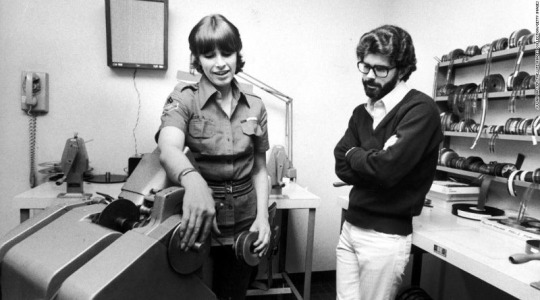
... and this leads us to the reason why George didn't double-down on the success of the Original Trilogy: he decided to take time off to raise his three kids as a single Dad.
He learned his lesson, reasoned that he wouldn't be able to be both a good, present father and a successful blockbuster film director.
When you're dealing with time-consuming commitments of this scale, you need to make a choice, or you'll end up (half-assing and thus ruining) both of them.
"Nope. Jedi get taken in as babies for a reason."
Once again, this has to do with Lucas' definition of "attachment."
"Jedi Knights get taken from their families very young. They do not grow attachments, because attachment is a path to the Dark Side. You can love people, but you can't want to possess them. They're not yours. Accept that they have a fate. Even those you love most are going to die. You can't do anything about that. Protect them with your lightsaber, but if they die they were going to die. There's nothing you can do. All you can do is accept that fact. In mythology, if you go to Hades to get them back, you're not doing it for them, you're doing it for yourself. You're doing it because you don't want to give them up. You're afraid to be without them. The key to the Dark Side is fear. You must be clean of fear, and fear of loss is the greatest fear. If you're set up for fear of loss, you will do anything to keep that loss from happening, and you're going to end up in the Dark Side. That's the basic premise of Star Wars and the Jedi, and how it works. That's why they're taken at a young age to be trained. They cannot get themselves killed trying to save their best buddy when it's a hopeless exercise." - The Star Wars Archives: 1977-1983, 2018
Jedi need to maintain objectivity and neutrality, in their day-to-day lives of mediating peace between planets.
And learning to "let go of your attachments when the time comes" is part of that training. But it is something that takes discipline and time, and thus the child needs to be young enough to develop this skill. Otherwise, they end up like Anakin, who always struggled to properly learn it and eventually was doomed by his greed.
This being part of Lucas narrative is also evidenced that in his earlier plans for the Sequel trilogy, he'd have Luke train children, not adults like he does in the EU.
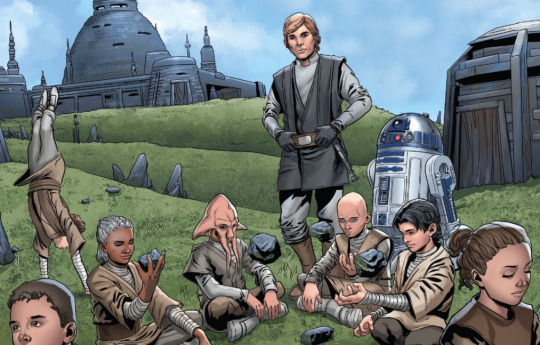
"Luke is trying to restart the Jedi. He puts the word out, so out of 100,000 Jedi, maybe 50 or 100 are left. The Jedi have to grow again from scratch, so Luke has to find two- and three-year-olds, and train them. It’ll be 20 years before you have a new generation of Jedi." The Star Wars Archives: 1999-2005, 2020

The EU's retcons of Lucas' narrative:
Now, obviously, the addition of all these rules and other elements such as midi-chlorians... it does something to the older audience. They grew up on the Original Trilogy, dreaming they could be a Jedi too if they just believed enough. Now that bubble is burst.
"Wait, if I'm a Jedi I can't get married?! And I need to be taken in as a toddler, with a certain kind of blood score?! That's bullshit!"
More importantly... it goes against about a decade's worth of established EU lore (which Lucas never factored into his storytelling)!
So what does Lucasfilm Licensing do? They go with it.
They take these "weird" rules the older audience and authors don't like, and retcon a new narrative around them to ensure both the books and the new films all stay canon within the EU own continuity.
George Lucas revealed new information about his universe in Episode II that ran counter to earlier stories of the Expanded Universe. Among the surprises: the Jedi Order is monastic, with love and marriage forbidden to its members. This would necessitate reforms to the Jedi Code over time to separate the ancient era when Nomi Sunrider was married to a Jedi, seen in the Tales of the Jedi (1993–94) comics, as well as the post-Empire era when Luke Skywalker married Mara Jade in the comic series Union (1999–2000). LucasBooks also needed to create plausible exceptions for Ki-Adi-Mundi, a Jedi Master who had multiple wives in the Prelude to Rebellion comics (1999). - Pablo Hidalgo, The Essential Reader’s Companion, 2012
When it comes to Luke specifically, the narrative becomes:

"Uh... y-yes. The old Jedi Order forbid marriage, only took in toddlers and had a blood pre-requisite... which was weird, wrong, too detached, too systemic, and part of why their Order failed! But, uh, Luke's New Jedi Order allows marriage, unlike his dogmatic predecessors, because anyone can be a Jedi guys!" Hahaha! (fuck's sake George)
But as already explained above: those new rules aren't meant to be perceived negatively. It would make no sense if they were, they're based on Lucas' own values.
You know what it does do, though?
It cements the narrative that Luke is the One True Jedi™, who rejected the dogmatic teachings to forge a new path forward.
That's not the intended narrative of the Original Trilogy, nor the six-film saga as a whole.
If you've made it this far in the post (congratulations) and are interested to read another all-encompassing post about that, you can check out the link below :)
#long post#REALLY long post#meta#luke skywalker#anakin skywalker#ben kenobi#star wars#george lucas#jedi order#yoda#jedi#empire strikes back#return of the jedi#the empire strikes back#original trilogy#tesb#ESB#ROTJ#star wars rotj#sw rotj#darth vader#sam witwer#dave filoni#attachment
828 notes
·
View notes
Text
I killed a part of me to keep you alive.
And u never noticed
#borderline personality disorder#bpd#mental illness#borderline culture is#bpd safe#bpd splitting#bpd thoughts#depressing shit#actually borderline#attachment#alive#survivor#notice#leave me alone
1K notes
·
View notes
Text
Absolutely wild to see Ezra Bridger circa season 1 described as someone who has "mastered the art of zero attachments" despite being like... nearly consumed by his fear of loss and abandonment and going on a wholeass journey throughout all four seasons towards figuring out how to trust again and how to understand that someone making a sacrifice isn't necessarily the same thing as being abandoned, that sacrifice can be an act of love as much as anything else, and it is THIS EXACT UNDERSTANDING of how to let go of his fear of losing those he loves that allows him to truly become a Jedi and understand what being a Jedi has always meant.
Like, gee, I'm sorry, but I dunno what you thought all of those blatantly obvious parallels to ANAKIN FUCKING SKYWALKER were all about other than showing that Ezra had learned to OVERCOME his attachments in a way Anakin did not, that Ezra was choosing to be the Jedi that Anakin should've been when faced with the exact same tests and temptations.
Rebels is not about realizing one should have more attachments because that's what saves you. It's about learning to LET GO of your attachments and accept change when it happens and to love people and love the world ANYWAY, even if you could lose them, even if you DO lose them, because THAT'S what will save you.
#star wars#star wars rebels#ezra bridger#attachment#attachment does not equal love#ffs this is the most Off interpretation of ezra bridger i might have ever seen
313 notes
·
View notes
Text

#oldermen#age gap relationships#tumblr girls#lana del rey#relationships#attachment#teacher crush#teacher attachment#aesthetic#girl blogger#this is what makes us girls#girlblogging#girlhood#hell is a teenage girl#just girly things
300 notes
·
View notes
Text
We ask your questions so you don’t have to! Submit your questions to have them posted anonymously as polls.
#polls#incognito polls#anonymous#tumblr polls#tumblr users#questions#polls about relationships#submitted june 8#attachment styles#attachment#emotions#relationships
452 notes
·
View notes
Text
“The softest things in the world overcome the hardest things in the world. From this I know that non-action (detachment) is useful.”
— Lao Tzu
23 notes
·
View notes
